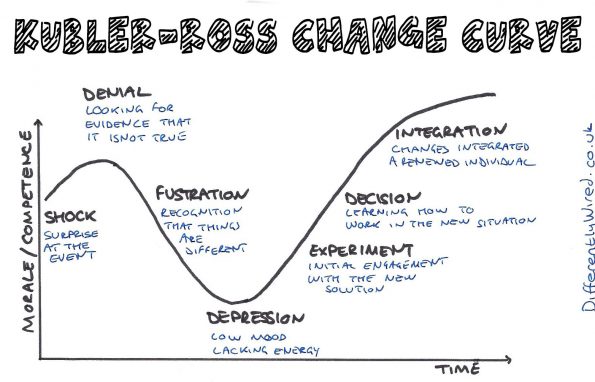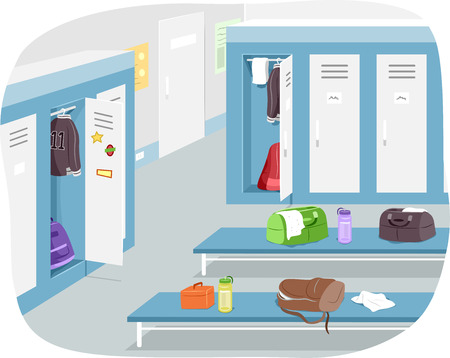Neurodiversity and Change
My gym has just undergone a refurb. As part of this, it got new lockers in which you leave your membership card in and take a key while you work out. This is a trivial change from the previous system where the card was tapped on the locker to lock/unlock but it still caught me out. Neurodiversity and change do not always play well together.
I have a relly poor working memory and it is virtually non-existent when I am not concentrating. To combat this I have a number of coping strategies which I’ve discussed these previously. I have so many and they are such an integral part of my daily survival that it is almost a subconscious process. I need little systems to ensure I remember everything I need to remember.
This starts in the morning where my work ID pass is already in my bag. It used to live on my coffee machine since that is a reliable part of my morning ritual. However, on days when I run out of coffee (now solved with a coffee subscription), I turned up to work without my pass. Days without coffee and the ability to get into work on time never go well. By having little systems for things I can improve the ones that don’t work. Looking back at the lost gym card I suspect I left the card in the locker when I got my stuff out and sadly it has not been handed in. I’ll need to devise a way to avoid this so as not to add a £6 dyslexic tax on every trip I make to the gym.
Looking back at the lost gym card I suspect I left the card in the locker when I got my stuff out and sadly it has not been handed in. I’ll need to devise a way to avoid this so as not to add a £6 dyslexic tax on every trip I make to the gym.
Implications for delivering change
This is an interesting, if trivial, example of why change can be hard for neurodivergent individuals. In my work, I’m a Project Manager. It’s a little ironic that my professional success is largely built on the coping strategies I’ve devised to help make up for my inherent neurological challenges. My day job is all about delivering change. I love change. I like the fact that change stops me getting bored. I like that a constantly changing environment means it’s more important to forecast what might happen than to remember a whole bunch of stuff about things that have happened. And yet I can still find change hard.
In addition to my role as a Project Manager, I also run a support group for neurodiverse people at my place of work. As part of this, I’ve been involved with facilitating changes which impact the community. This is not always easy as spiky profiles mean no two dyslexics are alike even before you consider other conditions (dyspraxia and so on in the neurodiverse community, and then in the wider disabled community hearing impairment, mobility impairment, visual impairment and so on). It is made even harder by the fact much of the community is naturally change adverse.
In my experience, there are two mains reasons for the change aversion. For those who struggle with sequencing and procedural learning, it can take a lot of effort to learn a new system or process. This is further complicated if the training/guidance is not particularly accessible. Secondly, there is likely to be a number of coping strategies (system tweaks, working aids, etc) to make it work for a brain that is differently wired. This all adds up to a big emotional and mental investment in learning how to use the current system so even if it is not considered to be very good there will be a reluctance to change from it. There is a recognised phenomenon called Ikea effect that explains why this is so.Couple that with the fact the Kubler-Ross change curve can be somewhat of an emotional rollercoaster for neurodiverse. If you think it’s hard
Couple that with the fact the Kubler-Ross change curve can be somewhat of an emotional rollercoaster for neurodiverse. If you think it’s hard delivering change to a neurodiverse community consider for a moment what it’s like receiving change when your brain is wired differently.



Pingback: Strategies for Overcoming Poor Memory in the Workplace – Differently Wired